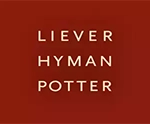(Aug. 19, 2011) Almost everyone has heard of the hot coffee case, but who remembers Stella Liebeck? A generation has grown up not knowing that it was Stella, a plucky 79-year-old woman from Albuquerque, New Mexico, who took on McDonald’s in a much publicized civil case in 1994.
“Hot Coffee,” a new documentary showing on HBO, retells Stella’s lost story (Liebeck died in 2004), and the stories of plaintiffs in three other important civil cases. The subjects present the human cost to the rights we are losing to caps on damages, pervasive use of binding clauses in consumer contracts, and corporate influence and control in the outcomes of judicial campaigns. The film is winning awards as it helps change attitudes about our civil justice system.
Taking Action: See how you can help spread the message about “Hot Coffee”
This summer our staff in Philadelphia got to see what the buzz is about. [A note of thanks to Xenia Hewka Scott, our Membership Director, for arranging the presentation, and to Asia Randolph, Development Assistant, who has HBO on demand.] The film stirred up healthy dialogue among our staff. Similar conversations are taking place all around the country.
Director Susan Saladoff, herself a trial lawyer, begins the documentary with the McDonald’s case and attempts to break down the damaging myths about so-called “jackpot justice” that we are still battling almost 20 years later. Today, trial attorneys, but few others, can recite these facts:
· The very hot coffee that spilled caused third degree burns on Liebeck’s thigh, buttocks and groin;
· Liebeck was hospitalized for eight days and endured painful skin grafts;
· At trial, it was learned that McDonald’s forced its franchises to sells its coffee at 180 to 190 degrees Fahrenheit, and that it had known about the risk of serious burns from its coffee for more than 10 years.
No one recalls that Liebeck sought to settle only for her actual and anticipated expenses; McDonald’s offered $800. Instead, people remember the distortions, jokes and propaganda successfully spun by powerful corporate special interests and repeated over and over. Liebeck became a poster child for the American Tort Reform Association (ATRA), who twisted and spun her story to push their anti-civil justice agenda and vilify trial lawyers.
Director Saladoff effectively weaves in “man on the street” segments that show what most people know or don’t know about the McDonald’s case. They are the first ones to see the shocking pictures of Liebeck’s injuries, and then we see them. These startling photos help erase the misperceptions.
“Hard Cap”
The film next tells the story of Lisa and Mike Gourley, a Nebraska couple, whose son Colin was born in 1993 with cerebral palsy. According to the film, a jury determined that the birth injury was the result of medical negligence and awarded the family $5.6 million to pay for Colin’s lifetime of medical care. But the Nebraska Legislature had enacted a total cap on all damage awards. This reduced the award to $1.25 million, leaving the family struggling to pay for Colin’s medical bills and care. The severity of this cap hits home in Pennsylvania, where consumers may be facing a similar challenge.
The story of Oliver Diaz, a former Mississippi Supreme Court Justice, is almost too astounding to be true, but it is. In running for re-election, Diaz went up against Karl Rove and the U.S. Chamber of Commerce in a national strategy to unseat state appellate judges. Diaz was outspent, but won re-election. However, according to the film, big business had him prosecuted on false charges. Diaz was subsequently found not guilty but did not regain his seat on the bench. His story is behind the fictional account in John Grisham’s The Appeal.
Finally, the pitfalls of mandatory arbitration contracts found in everything from credit cards to cell phones to employment contracts are brought home in the story of Jamie Leigh Jones. Jones alleged she was raped by co-workers when working in Iraq as a private contractor for KBR/Halliburton. When criminal charges could not be filed, she sought to hold Halliburton accountable for their misconduct, but a forced arbitration clause buried in her employment agreement meant she lost her right to a jury trial. Jones finally got her day in court. In July, after a month-long trial, jurors in a federal courtroom acquitted Halliburton of the charges. The jury also rejected Jones’ claims that the former Halliburton subsidiary committed fraud by “inducing her to enter into an employment contract.”
Director Saladoff does an excellent job of showing the struggles her subjects face. Undoing the damage done to our civil justice system is a challenge she meets head on. In the film, an Alabama judge sums up the frustrations of trial lawyers and anyone else who cares about the rule of law: “What we need is tort respect, not tort reform.”
Reprinted from PENNSYLVANIA ASSOCIATION FOR JUSTICE ENews for the week of August 22, 2011. From the desk of John Badal, President of the Reading, PA law firm of Liever , Hyman & Potter serving the seriously injured in Berks and Schuylkill Counties for more than 50 years in the areas of medical malpractice, auto, truck and motorcycle accidents, work injuries , nursing neglect and product defects.

